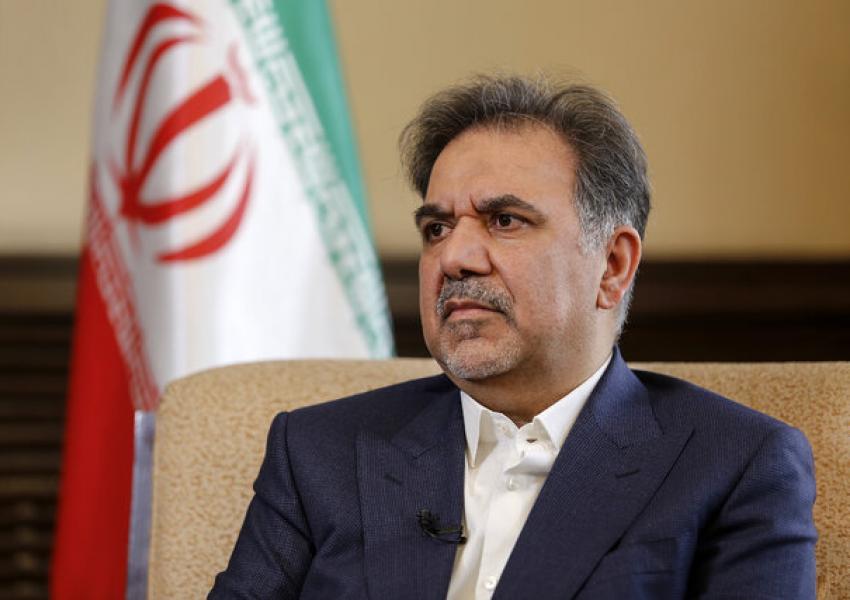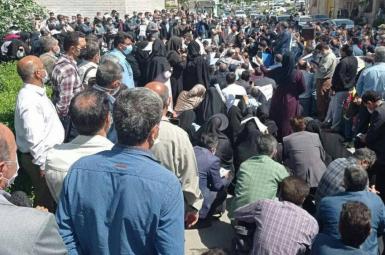
Likely Presidential Runner Says Iran Has Five Competing Governments
Iran has five governments, not one, according to Abbas Akhondi, a former transport minister who last year said he would stand in the June 2021 presidential election. Speaking in an interview published by the semi-official Iranian Student News Agency (ISNA) on Monday [February 8], Akhondi said executive responsibility was confused between the government, parliament, Expediency Council, the Revolutionary Guards, and the leader’s office.
The result, Akhondi argued, was “a situation that makes efficiency meaningless.” The former transport minister – he served four years under President Akbar Hashemi and five under President Hassan Rouhani – charged that Iran’s parliament acted like a rival administration rather than a legislature, and that the Expediency Council, which is charged with resolving disputes between different government bodies, also interfered in the government’s practical management of the country. Other quasi-governments are Supreme Leader Ali Khamenei's Office and the Revolutionary Guards, IRGC.
Akhondi said the situation had arisen from Rouhani’s performance. He charged that Rouhani had adopted a “security manner” in addressing both international problems relating to Iran’s nuclear program and joining conventions of the intergovernmental Financial Action Task Force (FATF) behind closed doors.
“Rouhani’s biggest problem is that he cannot talk to the nation,” Akhondi argued. “He might understand issues relating to the nuclear deal very well, but he cannot resolve them because he cannot garner the nation’s support.”
Akhondi criticized the Iranian parliament, or Majles, for acting largely as a rival to the government and thereby making laws meaningless: “The Majles creates a new regulation every day and tells the administration that it will be punished if it fails to abide by the regulations. But at the same time, it incapacitates the government in a way that it cannot implement the legislation.”
Akhondi also criticized the Expediency Council for acting as an alternative government by obstructing legislation needed to solve Iran’s problems with the FATF, which in February 2020 blacklisted Tehran for failing to enact legislation over accession to FATF rules. The relevant bills passed parliament in 2028 but have been stuck at the council since they were rejected by the watchdog Guardian Council, complicating Iran’s problems in international financial transactions.
Akhondi said that blockages in international links had led to Iran’s cultural life, politics, economy and society all being “severely agitated.” He added: “When healthy trading activity is not possible in a country, this means the economy is entangled in a web of corruption. And when the economy comes to a halt, the outcome will be unemployment, poverty and corruption.”
In the presidential election, Akhondi suggested, Iranians would understand whether a candidate was committed to economic liberalization or was just paying lip service and would in fact continue opaque relations “that can only breed more corruption.”
Akhondi charged that those operating transnational networks had an interest in resisting change. “A major part of the Iranian economy takes place underground,” he said. “In an underground economy, some individuals have access to money and power while others don’t.”
An academic at Tehran University, Akhondi was born in Najaf, Iraq in 1957, the son of late Ayatollah Ahmad Akhondi. He studied engineering in Tehran and later economics in London. Among his top connections, he is married to the daughter of Mohammad-Jafar Mahallati, former UN ambassador and confidant of Supreme Leader Ali Khamenei. Akhondi’s wife is the sister of the wife of Ali-Akbar Nategh-Nouri, former parliament speaker and former advisor to supreme leader Ali Khamenei.
Iranian conservative media reported in November 2019 that Ahkondi’s son had been charged with financial corruption linked to his father’s office. But Akhondi apparently avoided any comment and the allegations died out. During a colorful career as a minister, he resigned four times and suffered three inconclusive impeachments.








